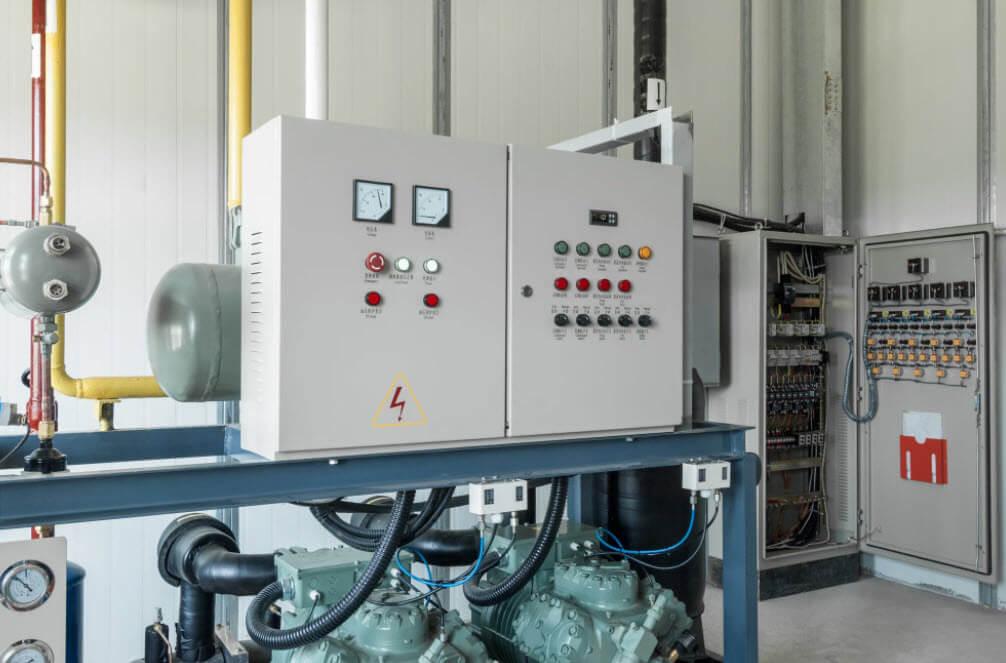Industrial automation programming is at the core of modern manufacturing and production systems. As industries continue to embrace digital transformation, the demand for precise, scalable, and intelligent automation solutions has never been higher. Whether it's a small assembly operation or a massive production facility, effective automation programming ensures seamless integration, increased efficiency, and long-term cost savings.
This powerful technology involves writing and configuring software to control machinery, sensors, and equipment in industrial environments. At its heart, industrial automation programming enables systems to operate with minimal human intervention, ensuring consistent quality, improved safety, and streamlined workflows across various sectors including automotive, food processing, pharmaceuticals, logistics, and more.
What Is Industrial Automation Programming?
Industrial automation programming refers to the process of creating code and logic that allow machines and production systems to operate automatically. Typically, this programming is done using Programmable Logic Controllers (PLCs), Human-Machine Interfaces (HMIs), Supervisory Control and Data Acquisition (SCADA) systems, and Distributed Control Systems (DCS).
The key functions of automation programming include:
-
Controlling machinery and conveyor systems
-
Managing real-time data collection and processing
-
Synchronizing multiple devices and operations
-
Triggering alarms and safety protocols
-
Integrating with enterprise systems such as ERP and MES platforms
By customizing logic to fit specific production needs, businesses can enhance flexibility, increase throughput, and reduce operational risks.
Why Industrial Automation Programming Matters
In today’s highly competitive industrial landscape, downtime, inefficiencies, and human error can cost companies millions annually. Automation programming offers a solution by enabling machines to operate precisely and predictably under any condition. The advantages include:
-
Increased Efficiency: Automated systems run continuously with minimal downtime.
-
Higher Accuracy: Precision control reduces waste and improves product consistency.
-
Real-time Monitoring: Instant feedback allows for quick adjustments and proactive maintenance.
-
Enhanced Safety: Programmable safety logic helps prevent accidents and system failures.
-
Scalability: Easily adapt systems to new production requirements or expansions.
As manufacturers embrace Industry 4.0, automation programming is becoming more intelligent with the help of AI, IoT, and cloud computing technologies.
Key Tools and Languages Used in Automation Programming
The backbone of industrial automation programming is its software. Engineers and programmers use a variety of tools to build and maintain automation systems. Some of the most common include:
-
Ladder Logic – A graphical programming language resembling electrical relay logic.
-
Function Block Diagram (FBD) – A visual representation for process automation.
-
Structured Text (ST) – A high-level programming language similar to Pascal.
-
Sequential Function Chart (SFC) – Used for defining sequential control operations.
-
CODESYS, Siemens TIA Portal, Allen-Bradley RSLogix – Popular programming platforms for PLCs.
Selecting the right programming language and platform depends on the complexity of the operation, the hardware involved, and the overall goals of the project.
How X-Automation LLC Can Help
When it comes to industrial automation programming, having the right partner is essential. X-Automation LLC specializes in providing custom automation programming solutions that help manufacturers achieve peak performance. Their experienced team of engineers works closely with clients to understand their unique requirements and deliver tailored systems that are reliable, scalable, and future-ready.
From initial consultation to programming, testing, and support, X-Automation LLC offers end-to-end solutions across various platforms and industries. Whether you’re upgrading legacy systems or launching a new facility, their automation services can help reduce integration time, minimize errors, and accelerate your path to operational excellence.
Industries That Benefit from Automation Programming
Industrial automation programming is widely adopted across various sectors, including:
-
Automotive: For assembly line control, robotics integration, and parts tracking.
-
Food & Beverage: Ensuring quality control, temperature regulation, and high-speed packaging.
-
Pharmaceuticals: Precision in batch processing, safety controls, and regulatory compliance.
-
Logistics & Warehousing: Automated material handling, sortation, and inventory tracking.
-
Energy and Utilities: Power plant monitoring, grid automation, and real-time diagnostics.
Each of these sectors has unique challenges that automation programming can solve with precision and reliability.
Future Trends in Industrial Automation Programming
As technology evolves, so does the world of industrial automation. Here are a few trends shaping the future:
-
Artificial Intelligence and Machine Learning: Systems that learn and adapt to improve efficiency.
-
Cloud-Based Control Systems: Enabling remote programming, monitoring, and diagnostics.
-
Cybersecurity Integration: Protecting industrial systems from digital threats.
-
Digital Twins: Simulating entire operations for testing and optimization.
-
Edge Computing: Processing data closer to the source for real-time decision-making.
These innovations are creating smarter, more responsive systems that continuously improve over time.
Final Thoughts
Industrial automation programming is not just about machines running on their own—it's about building smarter, safer, and more efficient processes that drive industrial growth. With the right technology and expertise, manufacturers can unlock the full potential of automation.
For businesses looking to stay competitive and future-proof their operations, partnering with a trusted automation expert like xautomationllc.com is a smart move. Their tailored solutions, industry knowledge, and commitment to innovation make them a valuable partner in your digital transformation journey.
